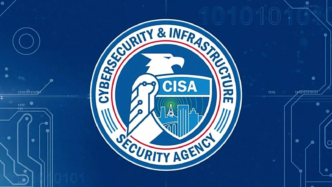Senator Ron Wyden has raised concerns that major U.S. phone carriers failed to inform the senate office and lawmakers about government surveillance requests, despite a contractual obligation to do so. In a letter sent Wednesday to fellow Senators, Wyden revealed that AT&T, T-Mobile, and Verizon did not notify Senate offices about legal demands for access to phone records—even those made by the White House.
Wyden, a senior member of the Senate Intelligence Committee, said an investigation by his staff uncovered that none of the three telecom giants were fulfilling their duty to provide surveillance notifications. Although all three now claim they have updated their practices, the senator’s findings paint a troubling picture of past non-compliance.
The letter, first reported by Politico, follows a broader conversation about surveillance transparency sparked by a 2023 Inspector General report. That report disclosed that during the Trump administration, phone logs and text messages from 43 congressional staffers and two House lawmakers were secretly obtained. The surveillance, targeting high-profile Democrats such as Adam Schiff, was carried out without notifying those affected—and under gag orders that prevented carriers from disclosing the requests.
Wyden emphasized the gravity of the issue in his letter: “Executive branch surveillance poses a significant threat to the Senate’s independence and the foundational principle of separation of powers.” He warned that if law enforcement can access location data or call histories without notice, the Senate’s ability to carry out its constitutional duties could be compromised.
AT&T, T-Mobile, Verizon Under Scrutiny
AT&T spokesperson Alex Byers stated that the company is “complying with obligations to the Senate Sergeant at Arms” and has not received legal demands related to Senate phones under the current contract, which began in June 2023. However, Byers did not confirm whether such requests were received before that date.
Wyden also noted that one unnamed carrier admitted to handing over Senate data to law enforcement without notifying the affected offices. His office declined to name the company, saying they did not want to discourage future cooperation.
Neither Verizon nor T-Mobile responded to inquiries for comment.
The issue ties back to a 2020 law that required third-party companies holding Senate data to alert lawmakers when government requests for information are made. Despite that law, Wyden’s staff found that the required notifications were not being sent.
The protections only apply to officially issued Senate devices—not personal or campaign phones, which remain vulnerable to surveillance without disclosure.
Smaller Carriers Lead on Transparency
Unlike the major carriers, some smaller providers now have clear policies to notify customers of government data demands whenever allowed by law. Startups like US Mobile and Cape, as well as Google Fi, have adopted such transparency practices—some only after being contacted by Wyden’s office.
US Mobile’s founder, Ahmed Khattak, admitted the company lacked a formal notification policy before Wyden reached out. Now, US Mobile commits to alerting users of legal demands unless blocked by a court or gag order. To date, Khattak said the company hasn’t received any such requests targeting Senators or their aides.
Cape CEO John Doyle said his company’s privacy policy already supported user notification. So far, Cape has not received any surveillance requests that included a non-disclosure clause.
While these smaller providers do not have contracts with the Senate, Wyden encouraged lawmakers to consider switching to carriers that now uphold notification transparency as a standard practice.













